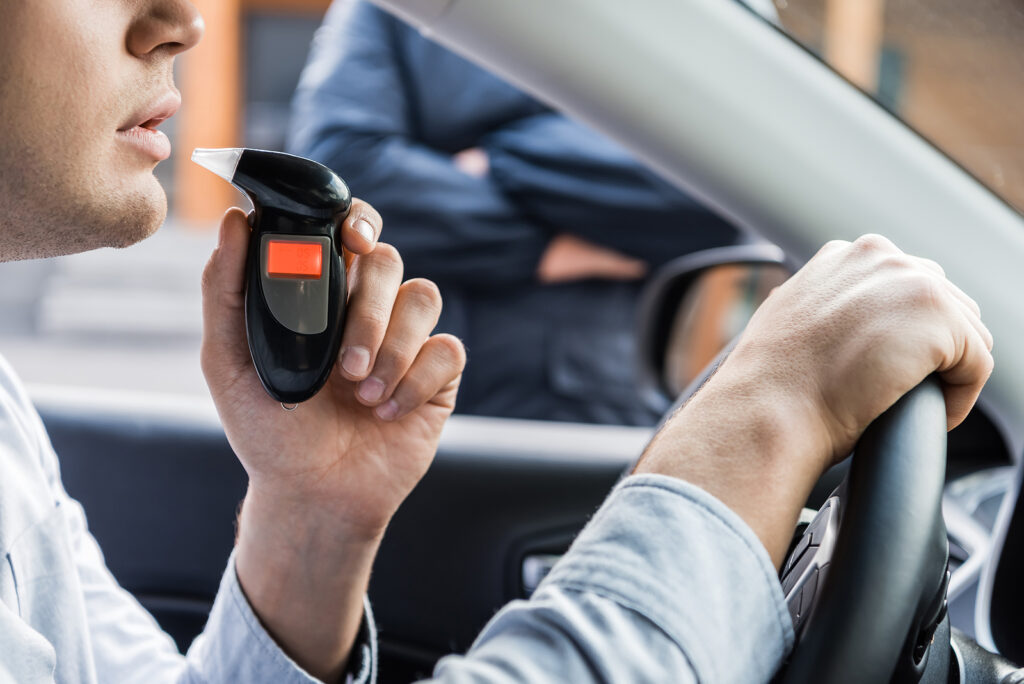Not all personal injury cases are created equal. Some are obviously better than others. When I say great or better, I mean worth more money than others. This could also be taken as substantially worse since it would likely mean you sustained a much greater injury. But why? What is the secret sauce which makes one case worth more than another? This blog will discuss the 3 things you must have to make your personal injury case GREAT! It doesn’t matter if it is a car accident, slip & fall, dog bite, products liability, medical malpractice or any other type of personal injury case. If you have all 3, your case will be great. If you are missing even one, your case may not be so great. Depending on which one is missing, it may be fatal to the case.
#1 SOMEONE ELSE MUST BE AT FAULT
This is one is the MOST IMPORTANT. It may seem obvious, but for your personal injury case to be great someone else must be at fault for causing your injuries. Lawyers call this liability. If you can’t show that someone else was liable for causing your injuries, nothing else matters. It’s game over. It doesn’t matter how badly you were injured, what your medical bills were or how much you lost in wages. You simply don’t have a case. If you got drunk, got behind the wheel of your car, lost control and drove straight into a telephone pole, there is no one to blame but yourself and you have no case.
Now it’s important to note that fault can some in all shapes and sizes. The obvious examples include, another driver blowing a red light and T-boning your car. Or the landlord who doesn’t maintain the steps that disintegrate when you try to walk down them. But many times, liability or fault is less obvious. Such as when there is a mechanical malfunction in your car, caused by a manufacturing defect, which causes you to lose control of the car. Or when a safety feature that would have lessened your injuries (think airbag), doesn’t function properly. Even if the accident is your fault, you may have a claim against the manufacturer for what they caused.
In some circumstances, fault is almost automatic. We call this strict liability. In Massachusetts, for example, if someone’s dog bites or otherwise causes you injury, they are strictly liable for your injuries. In that case, with very few exceptions, the owner or keeper of the dog is automatically at fault for causing your injuries.
It cannot be said enough. FAULT OR LIABILITY IS MOST IMPORTANT. That’s why it comes first on this list.
#2 YOU MUST HAVE A SIGNIFICANT INJURY
This one may also seem pretty obvious. For an injury case, you must have an injury. But for your case to be great, the injury must be SIGNIFICANT. Personal injury cases come in all shapes and sizes. If your injury is not that significant, it does not mean that you have no case. Unlike fault, this one is not automatically fatal to your case. But it does mean the value of your case will be less. And let’s be honest here. For a personal injury case, all a lawyer can get for you is money. We cannot cure your injuries. If you lost a limb, we cannot get it back for you. It’s only money that we can get for you. But the amount of money is the deciding factor. Hopefully, it will be enough money to help compensate for your loss. To replace lost income. To pay for medical expenses. To help your family get through a tough time. Many times, money will never fully do that, but it is how we gauge whether a case is great.
Whether the injury is significant depends on many factors. As noted above, all cases are different. We start by looking at the injury to your body. Did it kill the person? Did it cause them to lose a limb? Did it cause them to be paralyzed? Did they break a bone? Do they need surgery? Will they make a full recovery? How long will they need active treatment with doctors or therapists? Is there a mental health injury in addition to the physical? These are just some of the factors to consider. In addition, we also look at how much are their medical expenses? How much are their lost wages? Can they return to their job? How does the injury impact their immediate family?
There is no one-size fits all formula. Every case is different. Many times, when meeting with new clients, they ask “How much is my case worth?” My answer is always the same, “I don’t know.” At the beginning of a case, there is simply no way to know. Their treatment can take many twists and turns. Until the person is either all better or at least at the point where the doctors can do no more for them (a medical end point), it is impossible to know. Anyone who tells you different is lying to you. But keep in mind, the more significant the injury, the larger the value of the case.
#3 SOME ABILITY TO ACTUALLY GET PAID FOR YOUR INJURIES
As noted above, your personal injury lawyer can only get you money. That’s it. While the amount of money may depend on whether someone else was at fault for causing those injuries and how significant the injury was, there is one other factor which is often overlooked. How do you get paid? You could have both great liability and significant damages, but if there is no one who can pay you, your case is not that great. That is one of the very sad truths of many personal injury cases. That is why having some form of insurance or assets from which you can get paid is the third must-have for a great personal injury case.
But how can that be? If someone causes me to be seriously injured, aren’t they responsible to pay me for those injuries? The pure legal answer to this question is obviously “yes.” But the more practical and realistic answer is “not always.” If the person has no insurance and has no money or other assets, then it will be very hard, if not impossible to get paid for your injuries. Even if a Court gives you a judgment against them.
Consider this scenario. A 20-year-old kid gets drunk and plows into the car in which you are riding with your family. This causes very serious injuries to everyone. The kid has no assets of his own. He is too old for his parents to be responsible. He does not have a good job and no significant prospects for the future. Because his job is not great or non-existent, he let his car insurance lapse. In this scenario, where is the money coming from to compensate you for your injuries? Even if you sue the kid and the Court gives you a judgment for a million dollars, you may never see even a small percentage of it. The kid simply has no ability to pay any significant amount for your injuries. The judgment may not be worth the paper it’s written on.
This is why #3 is so important. With no ability to get paid for your injuries, your case is simply not great. Luckily, in many cases there are ways to get paid for those injuries. As we already discussed, insurance is the most obvious answer. Did the other person have insurance to pay for your injuries? Many times, the person who caused your injury has adequate insurance to compensate you for the injuries. This is usually the first place the lawyers will look. But is that the only place? Of course not.
In the event the person does not have insurance or if there is not enough insurance there are other places we can look. Do they have assets? Can we reach them or are they legally protected? These are the additional questions we often ask to try to find a way to get you paid for your injuries. But is this the only way?
In some cases, there is another way to help pay for your injuries. This is particularly true in car accident cases. Did you know that in Massachusetts, if the at-fault driver does not have insurance or has inadequate insurance, you may be able to get paid from your own auto insurance? There are coverages in the Massachusetts Automobile Insurance Policy, which do just that. They are called “Un-Insurance” and “Under-Insurance.” You may also be able to access what they call “MedPay” to help with medical expenses. Some coverages are optional and require you to pay a little extra. But the additional premium amounts per year are usually nominal. When faced with a catastrophic, life changing injury, having this extra coverage will prove to be well worth the extra cost. Having some extra insurance to compensate you for your injuries, could make a bad situation better.
In short, for your case to be great, it’s not enough to have great liability and significant damages. You also need a way to get paid.
CONCLUSION:
While these are not the only considerations that go into a personal injury case, we do think they are the most important ones. If you are missing any of the three, your case will certainly have problems. And if you are missing the first one, it will likely be fatal. For each of these, it is best to consult your personal injury lawyer. They can guide you through the process to ensure the best possible result. Although, as I have said before, each case is different. Whether you have a GREAT case will depend on the circumstances and whether you have these three must-haves as part of your case.






